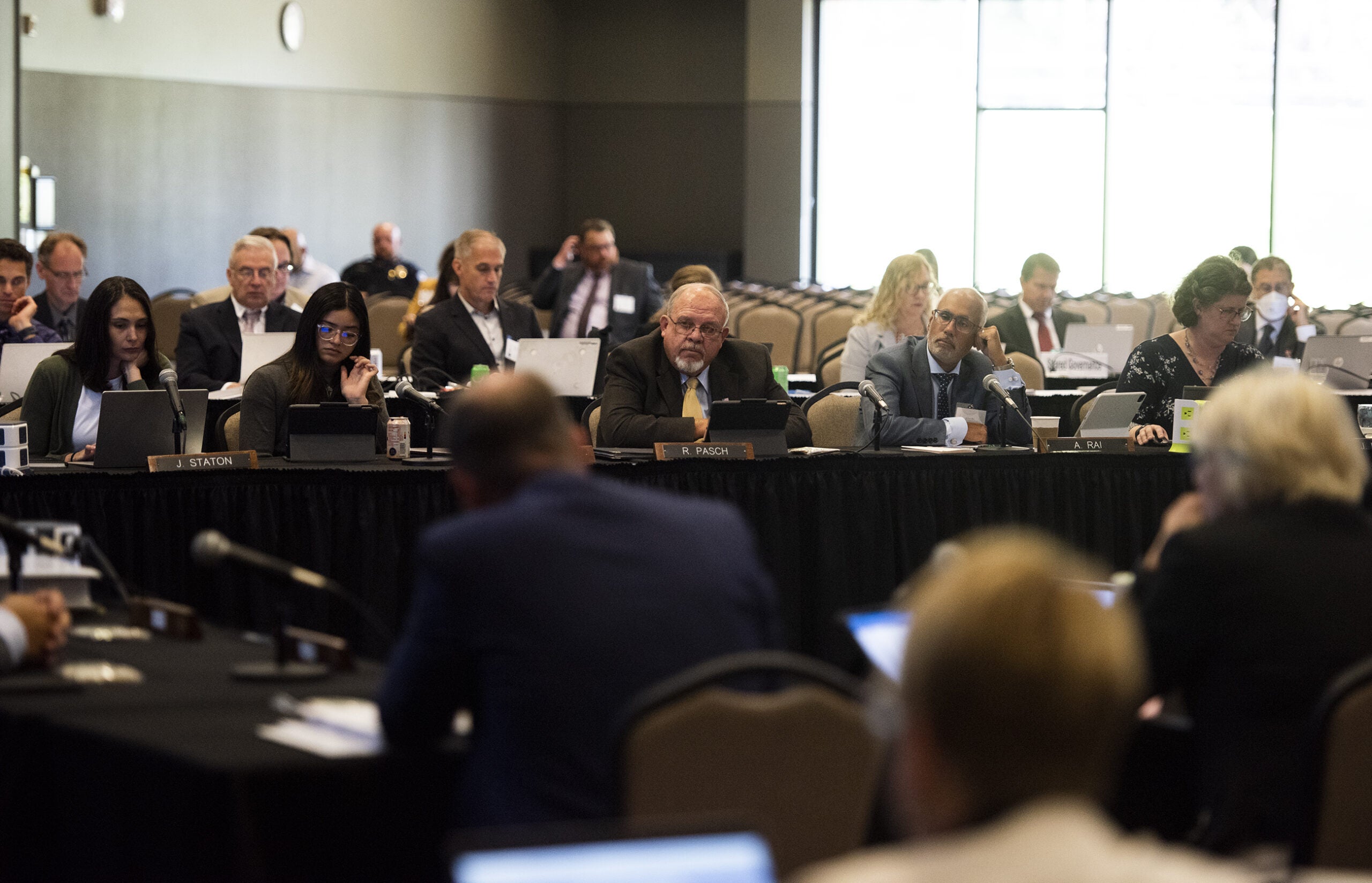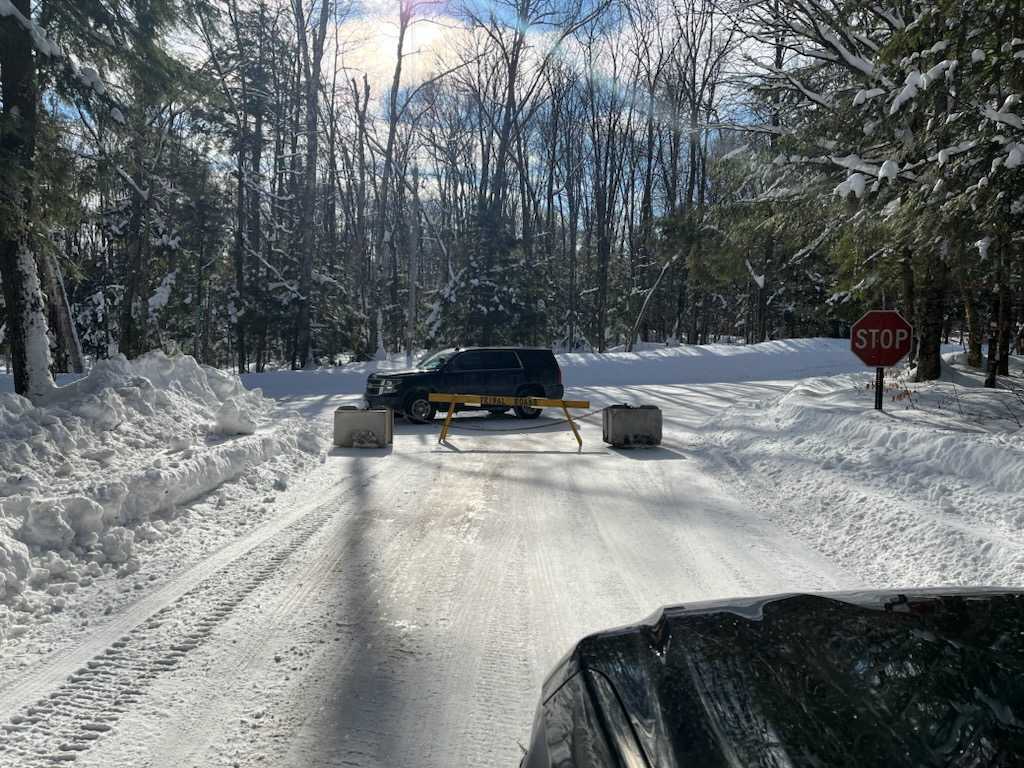A nonprofit news site in central Wisconsin is raising money to help cover its legal fees after being sued by a politician.
Earlier this year, a Marathon County judge dismissed a lawsuit filed in 2021 by Mosinee businessman Cory Tomczyk.
Tomczyk, who’s now a Republican state senator representing the 29th District, accused the Wausau Pilot & Review of defamation after it reported that he was overheard using an anti-gay slur against a teenager while in the audience at a Marathon County Executive Committee meeting.
Stay informed on the latest news
Sign up for WPR’s email newsletter.
Despite the publication’s victory in circuit court, Pilot & Review Publisher Shereen Siewert said it’s racked up between $150,000 and $200,000 in legal bills. Those expenses were enough to put the small news outlet in danger of shutting down, Siewert said.
“When the judge dismissed the (complaint), his reasoning that was outlined in his ruling was very clear,” said Siewert, “It was very sound reasoning, and we were so relieved. But then we realized that even if we win, we lose.”
Siewert also is employed by Wisconsin Public Radio as part-time host of the regional news and culture talk show, Route 51. WPR staff members who interact regularly with Siewert were not involved with the reporting or editing of this article.
Republican state senator is appealing Marathon County ruling
Tomczyk is appealing the circuit ruling. He “unequivocally denies” using the slur at the county meeting and “looks forward to clearing his good name at trial,” his attorney Matthew Fernholz wrote in an email.
The Pilot & Review’s total annual budget is about $180,000, Siewert said. She had hoped to add a south metro reporter to the publication’s four-person staff, but said mounting legal bills made that impossible.
“It’s extremely frustrating that this kind of money is just being completely wasted,” Siewert said. “It’s money that could go to boots-on-the-ground reporting.”
Siewert, a longtime journalist, founded the donor-supported Wausau Pilot & Review in 2017. She says she wanted to shine a light on local government and other local affairs.
“As larger news organizations continue to shrink, they continue to cut back, they continue to remove reporters. We’re looking to grow and fill that gap,” she said. “You build, and build, and build something that is meant to be a huge service to the community, and just to see it all so easily taken away, potentially taken away. It’s frightening.”
After the New York Times published an article about the Pilot & Review’s situation this week, Siewert says donations have been pouring in through direct contributions and a newly launched GoFundMe. She says she’s no longer worried about imminent closure.
Nonetheless, Erik Ugland, who teaches media law at Marquette University, says lawsuits like Tomczyk’s could have a chilling effect on other media outlets.
“One of the concerns is that this is an example of somebody using their resources to try to sort of push somebody else around,” he said. “This case never had a chance of succeeding — not a prayer — and yet it accomplished a goal in the sense that it has now put this organization in jeopardy to the point where they’re having to do GoFundMe campaigns.”
Pilot & Review reported on overhead comment on meeting over diversity resolution
Tomczyk, the owner of an industrial recycling business called IROW, spoke at multiple Marathon County meetings in 2021 to voice his opposition to a diversity initiative known as “Community for All.”
The county board ultimately deadlocked and failed to pass the one-page, non-binding Community for All resolution after more than a year of contentious debate. Supporters hoped to acknowledge racial and other disparities and to affirm the county’s commitment to diversity in the wake of 2020 protests over police misconduct. But critics accused the county of trying to sow division while making white residents feel guilty.
In an Aug. 21, 2021 article, the Pilot & Review reported that the mother of a teen boy said her son and another speaker were called a slur at a meeting concerning Community for All. That article attributed the remark to a “local businessman” without naming Tomczyk. About a week later, the publication named Tomczyk in an Aug. 28 article, which said, “Tomczyk, earlier this month, was widely overheard calling a 13-year-old boy who spoke in favor of the resolution a ‘f—.’”
In an interview Wednesday, Siewert said the Pilot & Review stands by its reporting.
“We didn’t report on the person who said it until we had spoken to enough people,” she said. “At the end of the day, it was an important story.”
In response to the lawsuit, the Pilot & Review submitted affidavits from at least three meeting attendees, including the boy’s mother, who said they’d heard Tomczyk, or a person they later came to realize was Tomczyk, call someone a “f—” or “f—t.” They also included messages sent from the boy’s mother to a Community for All supporter, in which the mother wrote, “The man behind me just referred to the speaker and then to my son as a f—. I am in tears and livid.”
Tomczyk’s attorneys submitted an affidavit from conservative activist and WSAU talk show host Meg Ellefson, who wrote she was seated next to Tomczyk for the entire meeting and did not hear him use “f—” or any other slur.
In deposition, Tomczyk admitted to using the slur on other occasions
Although he denies using the word at the Marathon County meeting, Tomczyk has admitted to using the slur at other times in his life.
“I have a brother who is a gay guy, and I’ve certainly out of joking and out of spite called him a ‘f—t’ more than once,” Tomczyk testified in a deposition resulting from his lawsuit. “I have a couple of friends who are also gay, and in that community, that term, I don’t, I don’t feel in that community that term has the same negative connotation (as) in a straight community. The guys that I know laugh it off.”
Tomczyk previously served on the Mosinee School District board, as vice chair of the Marathon County Republican Party and as a board member for the Wausau Area Chamber of Commerce. He won election to the state Senate in November 2022 and took office in January.
Because Tomczyk counted as a public figure when weighing in on the Community for All debate, Judge Scott Corbett wrote that Tomczyk needed to prove the news site acted with “actual malice” and “reckless disregard” in publishing something false and defamatory about Tomczyk — something that Corbett concluded Tomczyk’s attorneys had failed to do.
“Given the stated purpose of the ‘Community for All’ resolution, was to promote inclusivity, his alleged use of the slur would be germane to the resolution and his participation in the controversy,” Corbett wrote in his decision this April.
Publisher says Wisconsin ANTI-SLAPP laws are needed
James Friedman, the Pilot & Review’s attorney, told Wisconsin Public Radio he’s confident the publication will successfully shoot down Tomczyk’s appeal. But he says it could be several months before briefings are submitted in Tomczyk’s appeal and then three to nine months after that before the appeal is resolved.
Siewert says the protracted legal saga is evidence of Wisconsin’s need for what’s known as anti-Strategic Lawsuits Against Public Participation or “ANTI-SLAPP” laws.
At least 32 other states have those laws, which are intended to guard against lawsuits seeking to chill free speech and freedom of the press rights, according to the Reporters Committee for Freedom of the Press. In some states, those laws allow defendants to get a suit dismissed quickly before a costly discovery process. In other cases, they make it easier for defendants to win back attorney fees and costs.
“If it’s a case in which the defendant can make the argument that this was a lawsuit that’s being pursued in order to discourage people and intimidate people, and in fact, cost people a ruinous amount of financial damage, then that suit can be dismissed very, very early in the game,” said Robert Drechsel, a professor emeritus of journalism at the University of Wisconsin-Madison. “In many cases, plaintiffs aren’t really suing to win, but they win by suing.”
Wisconsin Public Radio, © Copyright 2025, Board of Regents of the University of Wisconsin System and Wisconsin Educational Communications Board.






